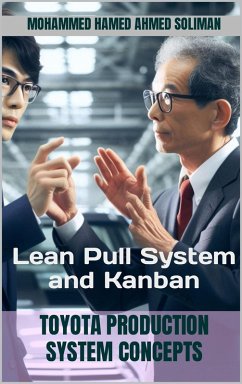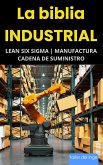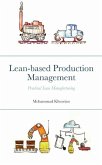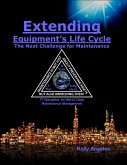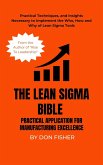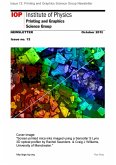Unlike traditional production where products are pushed into the market hoping someone will buy, pull production begins by listening to what is actually needed - how much, when, and where.
In this clear and practical guide, Dr. Mohamed H. Soliman explains how pull systems work, how they reduce overproduction, and how they connect to Just-in-Time (JIT) as part of Toyota's lean philosophy.
You'll learn:
- How downstream steps signal upstream steps for what is needed
- Why pull is the opposite of "make-to-stock" thinking
- The role of Kanban as the visual tool that enables pull
- How Pull, Takt, and Flow form the three pillars of JIT
- Why Heijunka (Leveling) is the foundation behind them all
- Real examples of pull in factories and service organizations
Whether you are just starting with Lean or improving an existing system, this book gives you the mindset, methods, and steps to make Pull Production work in the real world.
Because flow starts with demand - not guesswork.
Dieser Download kann aus rechtlichen Gründen nur mit Rechnungsadresse in A, B, CY, CZ, D, DK, EW, E, FIN, F, GR, H, IRL, I, LT, L, LR, M, NL, PL, P, R, S, SLO, SK ausgeliefert werden.

